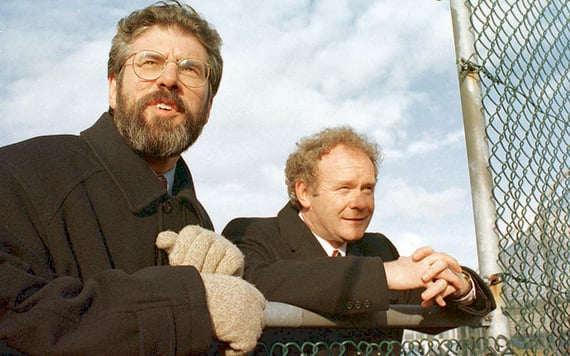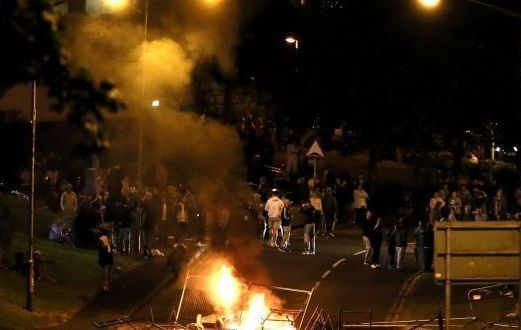This is shaping up as one of the most dangerous times for the Good Friday Agreement since it initially bedded down 20 years ago. It would be all too easy to tear it apart.
The recent attacks on the homes of senior Sinn Fein figures Gerry Adams and Bobby Storey were warning shots about notions that The Troubles would never flare again. There were also clear and troubling signals during several nights of rioting and shots taken at police officers in Derry during July 12th week.
The Adams attack from a moving car smacks of a copycat attack to what happened in Derry where dissidents fired at police. A few Belfast dissidents most likely wanted to make their presence known.
Add into the inflammatory mix the right-wing Tories in Britain such as Jacob Rees-Mogg and Boris Johnson who would gladly enforce a hard border, and you have a toxic cocktail.

Former Sinn Fein leader Gerry Adams.
There is no functioning government in Northern Ireland simply because of the failure to implement the Belfast Agreement and subsequent agreements in its wake.
In the vacuum unionists seem blissfully unaware that their demographic destiny is as a minority in Northern Ireland, and their need to secure their future in an agreed Ireland should dictate their thinking, rather than more of the “No Surrender” catchcry.
It is an especially vulnerable moment for Sinn Fein, which is seeking to settle in two new leaders, Mary Lou McDonald in Dublin and Michelle O’Neill in Belfast – faces of the future as the legendary leadership of Adams and Martin McGuinness becomes part of the past.
No matter how talented and resourceful the new leaders are, they will never match the authority Adams and McGuinness had as they defused militants during the long march to the Belfast Agreement.

Gerry Adams and Martin McGuinness.
A key also lies in Irish America, where the Adams/McGuinness peace policy famously won over those who had once evinced very hard lines on the North. It took an enormous amount of work by Republicans such as the late Joe Cahill and the highly respected veteran Rita O’Hare, who handles North America for the party and is tireless in recognizing the need to be constantly vigilant.
That has not stopped some leading dissident figures from trying to gain U.S. support.
Frequent visits here were made probing for an opening, especially financially, but to no avail so far.
But that could change. The lack of a U.S. envoy to help deal with the government shutdown talks, and the absence of a U.S. ambassador in Dublin have led to a widespread sense in White House circles that Ireland is hardly worth caring about, which sends its own dangerous signal.
There should be no room for complacency, as the events around July 12th make clear.
Restoration of government, resolving Brexit without a hard border and ensuring international attention, especially from the U.S. on the issue, are vitally important.
It could never happen? Planning for the worst would have made you prescient in Irish politics.
A 1968 civil rights march in Derry turned into a 30-year conflict. A bullet from a gun at Béal na Bláth changed an entire country forever.
Very few in their right mind wanted the Troubles or the Civil War, yet both almost inexplicably happened. When it comes to Ireland’s past, the biggest fiction for the future could be that it will never happen again. The price of peace is eternal vigilance.
Read more: Heartbreaking images from Northern Ireland remind us why we can never return to the Troubles




Comments